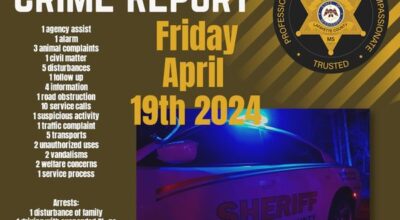L.O.U. Literacy Leaders launches literacy training
Published 12:00 pm Tuesday, January 26, 2016
Volunteers from across the community will begin L.O.U. Literacy Leaders training program on Feb. 6-7 and learn how to better tutor kindergarteners through third-graders in reading.
This project of the LOU Reads Coalition is a partnership between the Center for Excellence in Literacy Instruction (CELI) at the University of Mississippi and the Lafayette County Literacy Council, and is funded by the United Way of Oxford and Lafayette County.
“Our community is fortunate to have many volunteers,” said Sarah McLellan, executive director of the Lafayette County Literacy Council, “and our hope is that they leave these sessions prepared for tutoring kindergarteners through third-graders in reading.”
Angie Caldwell, CELI literacy teacher, will teach the ParaReading professional development module by LETRs. The Mississippi Department of Education is providing LETRS training for teachers across the state and the ParaReading training was created to provide similar training for tutors, teaching assistants and others who help children learn to read. Participants who complete the training will have the preparation and confidence to make a difference in their students’ reading skills. Each participant will receive a workbook to use as a resource as they continue to work in the community as well as a Certificate of Completion.
“Our focus is to ensure that children exit third grade reading proficiently; thus, it is an honor to offer these sessions to prepare volunteer tutors to better meet the needs of the children they tutor by providing them with the foundational knowledge of how children learn to read,” said Dr. Angela Rutherford, director of the University of Mississippi Center for Excellence in Literacy Instruction. “Because the ParaReading training by LETRs aligns with teacher professional learning opportunities provided as a part of MDE’s Literacy-Based Promotion Act, the participating tutors can supplement and support classroom instruction.”
Research shows that reading proficiency by the end of third grade enables students to shift from learning to read to reading to learn, and to master the more complex subject matter they encounter in the fourth-grade curriculum.
Many students who fail to reach this critical milestone falter in the later grades and often drop out before earning a high school diploma. Yet two-thirds of U.S. fourth graders are not proficient readers, according to national reading assessment data. This disturbing statistic is made even worse by the fact that, in the United States, more than four out of every five low-income students miss this critical milestone. Mississippi’s new Literacy-Based Promotion Act requires third grade students to be retained if they do not score proficient on the assessment taken at the end of the school year.





